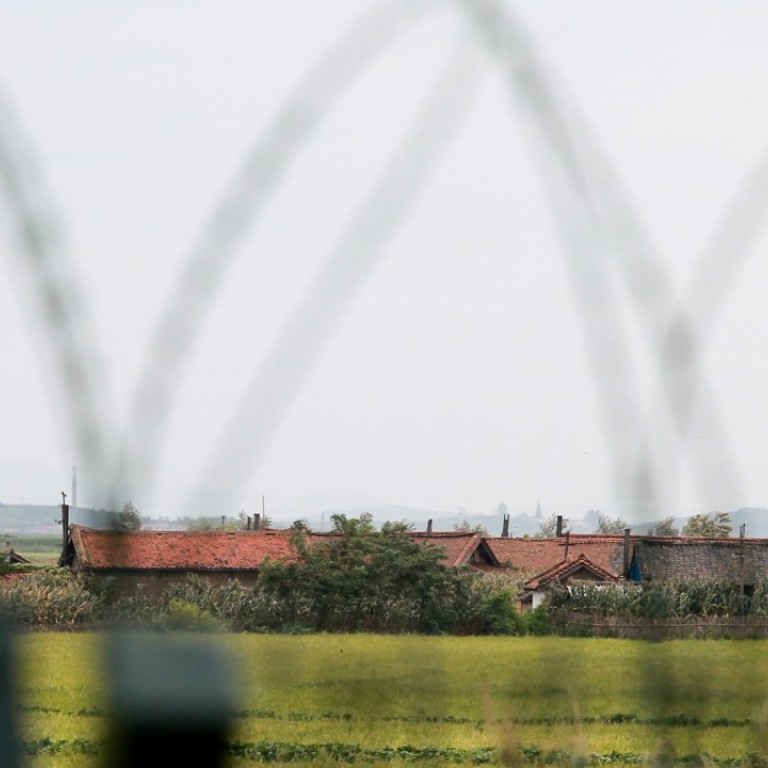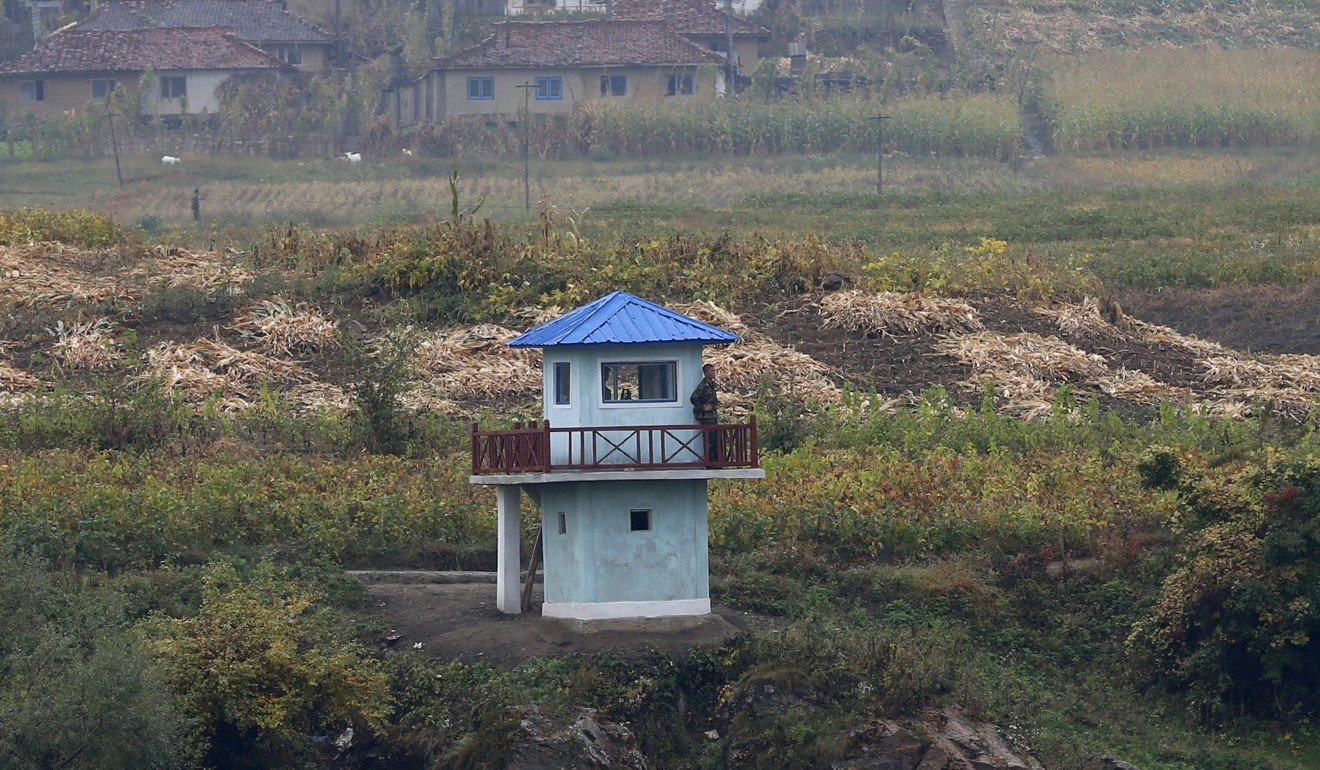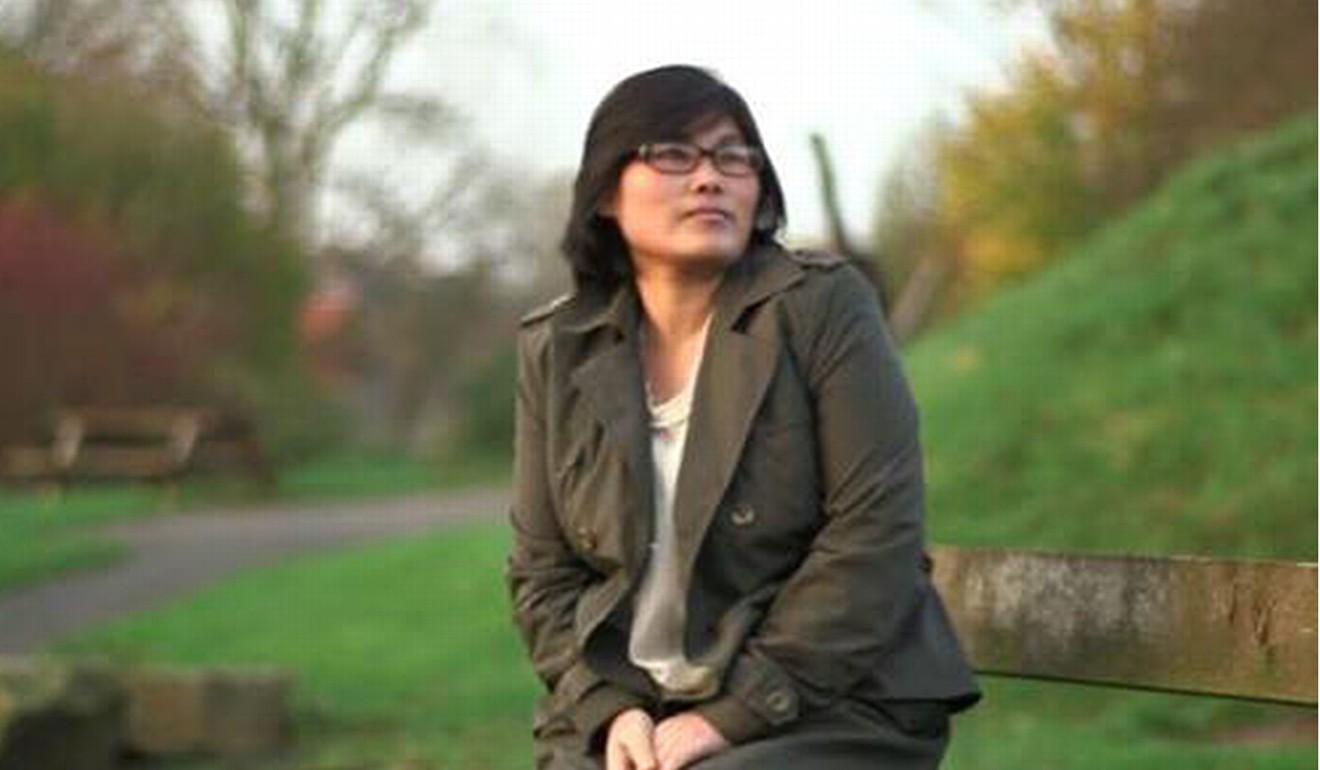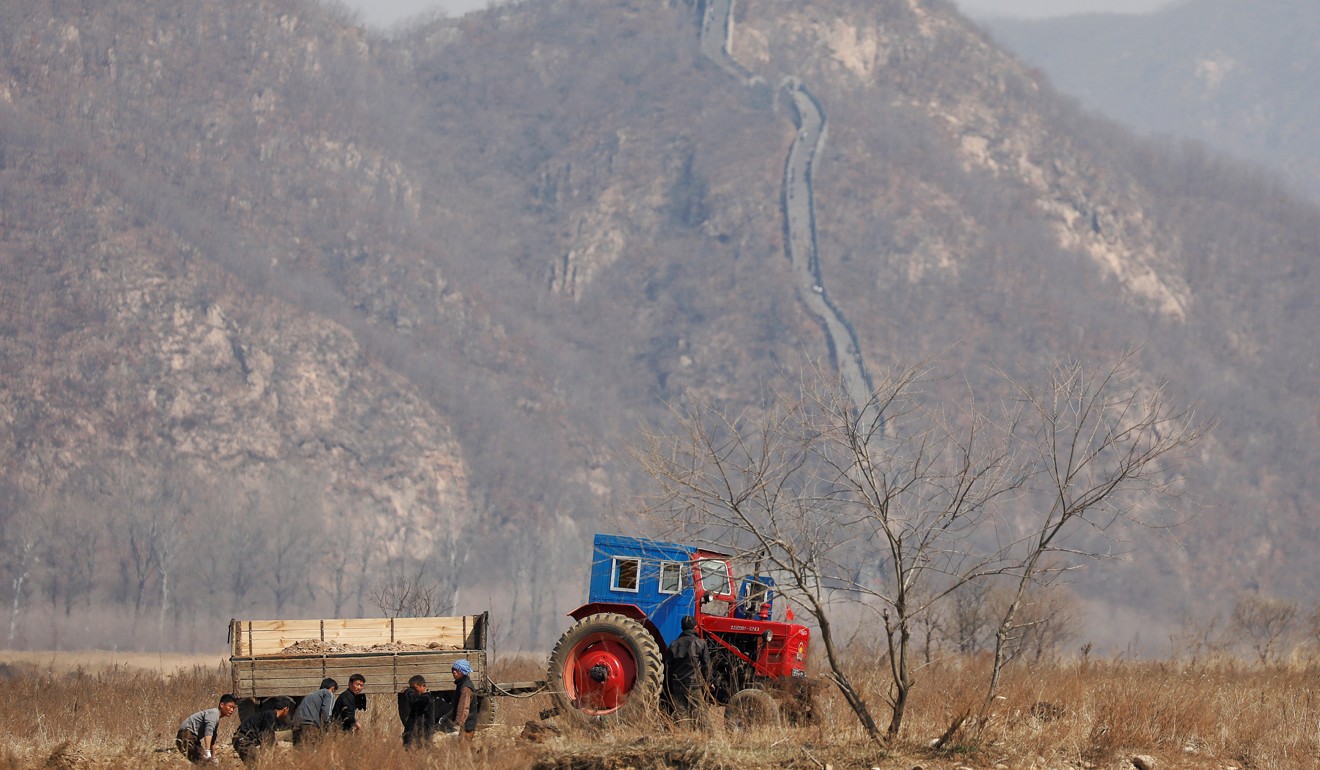
From seeking refuge to slavery: how North Koreans become victims of human trafficking
North Korean refugee women have been trafficked as soon as they cross into China, often sold as brides to poor farmers or forced into cyber pornography
The great famine that struck North Korea during the 1990s triggered a mass exodus from the reclusive country. An untold number of people have since fled to China and more than 30,000 have defected to a third country such as South Korea.
But North Korean refugee women have been trafficked as soon as they cross into China, often sold as brides to poor farmers or forced into cyber pornography that caters to South Korean men, according to frontline workers.
Dan Chung of Crossing Borders, a non-governmental organisation that provides humanitarian support for trafficked North Korean women and their children of forced marriages, says there’s not enough resources to help care for traumatised children born to North Korean refugees with a Chinese father. Many do not have citizenship and, as a result, are unable to attend school even though China gave identification cards to some children of North Korean refugees in 2009.
“They’re all born into poverty,” Chung said. “Most of them have witnessed their mom abandoning or disappearing or getting arrested by Chinese police and never to be heard again. [There’s] immense trauma from losing your mother. They also hear how ruthless North Korea is.”
One girl in the NGO’s care was told by her mother not to tell the police of her hiding place, a hole in the ground. When the police came looking for her mother, the girl pointed to the hole and her mother was taken away. She never saw her mother again.

The problem was highlighted when the US State Department singled out China last week as one of the worst offenders for human trafficking globally, downgrading the nation to Tier 3 – the lowest level, on par with Sudan, Iran and North Korea.
Tim Peters, a prominent advocate of Helping Hands Korea said: “Such a downgrade is richly deserved in my view.
“There has been a virtually lawless environment in China’s three northeast provinces adjacent to the DPRK [North Korea] with respect to widespread sex trafficking of North Korean women. Hundreds of thousands of women border-crossers have been funnelled into ‘red light’ districts but especially into illegal ‘brides for sale’ networks.”
The report called on China to stop forcibly repatriating North Koreans back to North Korea “without screening them for indicators of trafficking” and instead offer them humanitarian assistance and legal alternatives. According to several frontline groups, North Koreans who are sent back to the isolated state face forced labour and execution.
However, in past years, a secretive network of operators who rescue North Koreans who have fled into mainland China has helped take them safely along the 3,000-mile long “underground railroad” to a third country like South Korea where they get automatic citizenship.
Some of the trafficked women lived in extreme fear and loathed their husbands. Some were even sold multiple times after crossing the Tumen River into China out of extreme desperation. Su-jin, for instance, was lured by a trafficker who promised her a job and a better life. She was sold for 1,000 yuan (US$150) to her first “husband”.
Ji Hyun Park, a North Korean defector based in the UK, and coordinator of the non-profit, European Alliance for Human Rights in North Korea, said if the Chinese men considered the North Korean women they purchased as “wives” as damaged or they became useless, they would immediately “resell” them, like merchandise, to other people.
Park should know, as she was sold to a Chinese farmer for 5,000 yuan in 1998 and eventually escaped.

But the problem is not just in China. Some NGO workers helping trafficking victims said they estimated that 100,000 North Korean workers are in one region of Russia alone, working in gulag-like camps with salaries paid directly to the North Korean government.
“As in virtually every North Korean labour contract in foreign countries, employees’ wage payments are made to a DPRK government overseer or agent who skims off the lion’s share for dispatch to the Kim regime in Pyonyang, leaving a pittance for the individual DPRK labourers,” Peters said.
The Global Slavery Index – an annual study of worldwide slavery conditions by country – estimates US$2.3 billion is generated per year for the North Korean government while civil society groups say North Korean workers earn only between US$120 and US$150 per month and “may be forced to work up to 20 hours per day with limited rest days”.
Steven Kim, founder of US-based 318 Partners, a non-profit organisation that helps North Korean refugees, said he had met many North Korean men who were in forced labour in restaurants, on farms or factories and were exploited by Chinese business owners who threatened them with deportation. A few of these North Koreans reacted violently when they were not paid and subsequently were sent to prison.
In 2006, I witnessed the beginning of a small grassroots movement of Christians from the house churches joining the fight against human trafficking in China – a radical concept, since women in prostitution were traditionally treated with contempt and not welcomed into churches.
Ai Jin, one of the outreach leaders, said that before she began to rescue women from sex trafficking.
“I didn’t want to shake hands with prostitutes, thinking their whole body was dirty. Now I can treat them like my own family,” she said.

Several Christian and non-faith-based groups were beginning to rescue women and girls from sex trafficking along China’s border areas, in Yunnan and Henan provinces, and in northern China.
But one of their greatest challenges was they were working in secret, hoping to avoid being shut down by authorities. Also, they were dealing with sadistic organised crime members.
Chung said this past January that several arrests have been made of missionaries who had been simply helping North Korean refugees in China with counselling and spiritual support. “That’s alarming to us,” he said. Apart from the government crackdown, these rescuers also face the danger of being killed by gangsters behind the trafficking networks.
But the problem of human trafficking in China covers a broader scope than the border with North Korea. Due to the gender imbalance created by China’s having millions more men than women, and the migration of women from rural to urban centres, the bride trafficking of women and girls from Southeast Asian nations like Vietnam has been occurring over the years.
At border towns, I met Chinese girls waiting for johns while strung out on drugs. The atmosphere was hostile – like something dangerous could happen at any second. I was cautioned by the NGO worker not to take photos in an obvious way. At one brothel area, an enormous man approached us to ask what we were doing while I was interviewing girls by the Myanmar border.
On another trip, I met a 14-year-old girl and her older pimp, a “Romeo trafficker” pretending to be her boyfriend, at a restaurant to learn why he was in the business. It came down to money.
China says it has done much in the fight against human trafficking, and that is true. Some experts said they have even done more than Hong Kong, which is in Tier 2 Watch. But there is always more to be done and any grassroots or NGO efforts to rescue them should be respected.
Sylvia Yu is a writer specialising in human trafficking issues. She is also the author of the book, Silenced No More: Voices of Comfort Women

